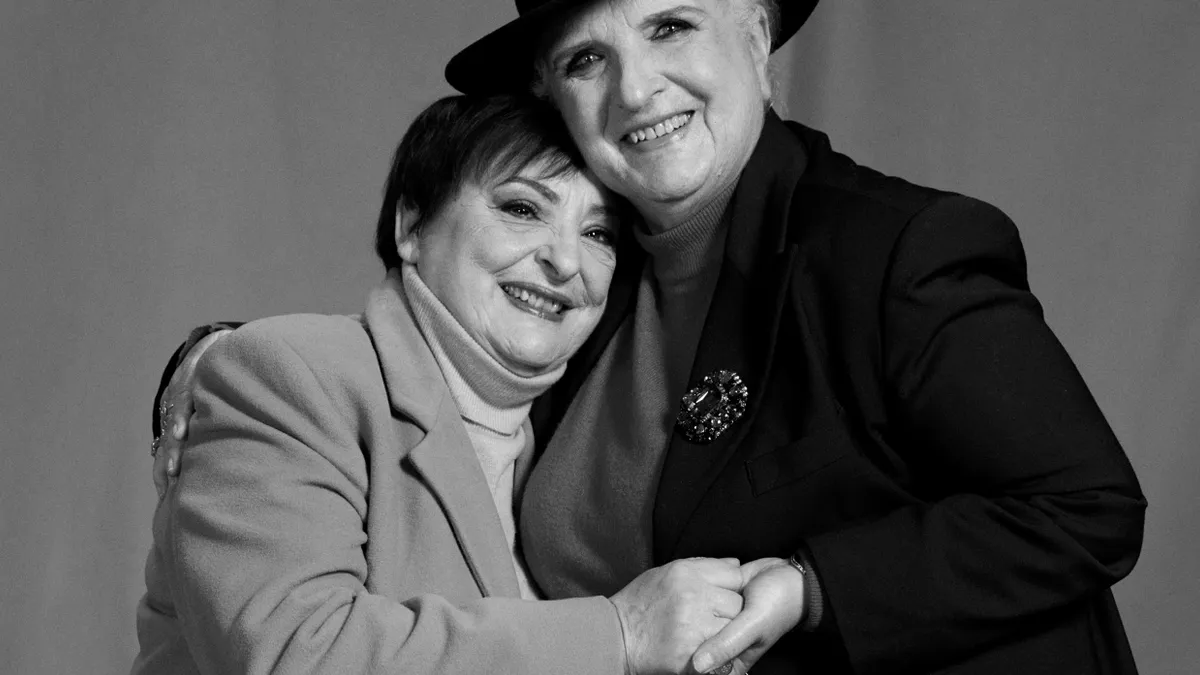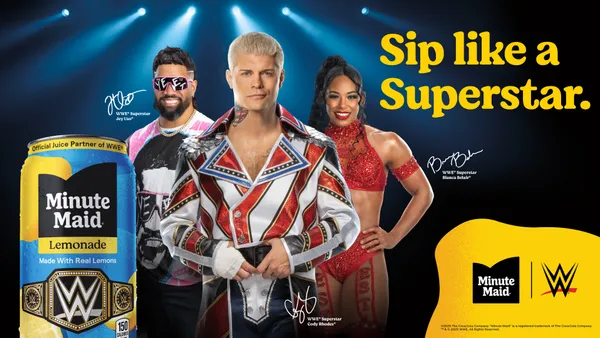Dive Brief:
- H&M developed a web-based scanner app that detects rainbow patterns as part of its marketing around Pride month, according to a news release. The fast-fashion retailer claims the image-recognition technology is the first of its kind to recognize color.
- When users scan rainbow-decorated objects in their surroundings, including Pride flags, food or clothing, the app opens a "Beyond the Rainbow" landing page spotlighting stories from a variety of LGBTQ people, including influencers and H&M employees. The brand is encouraging consumers to post about their own experiences on social media as part of the push.
- H&M partnered with actor and singer Michaela Jaé Rodriguez, influencer Héctor Trejo, DJ, model and actor Sus Wilkins and actor and activist Chella Man to support the effort. It will also match donations to The Trevor Project, a nonprofit focused on LGBTQ suicide prevention and crisis intervention, for the June campaign.
Dive Insight:
H&M is putting a tech-focused spin on its Pride marketing this year with an image-recognition app that links users to an immersive content hub. The concept intends to step beyond surface-level Pride signifiers to instead share more intimate stories from celebrities and H&M employees related to coming out and contending with both love and hate on their journeys. The brand is also providing resources such as Instagram filters to spur LGBTQ consumers to post about their own experiences on social media throughout June.
The fast-fashion retailer isn't shying away from the struggles LGBTQ people have faced with "Beyond the Rainbow." In a statement, Rodriguez — one of the stars of the campaign — emphasized liberation that was fought hard for, pushing people to think beyond the Pride flag's colors alone. Campaign videos shot in a stark black-and-white style profile a diverse array of individuals, many of whom grow emotional speaking on their backgrounds.
A more grounded, candid approach might resonate with consumers who have grown wary of brands encroaching on Pride, which celebrates a history of political activism in the LGBTQ community. More companies have been accused of "rainbow-washing" the occasion in recent years, co-opting a meaningful moment to peddle rainbow-decorated products and then largely ignoring LGBTQ consumers the rest of the year. Pride marketing at the same time may return in stronger force in 2021 after parades and other events that draw troves of consumers were waylaid by COVID-19 last year.
Some marketers have grown more aware of shortcomings in their outreach to LGBTQ consumers. Procter & Gamble, the packaged goods giant behind brands like Tide and Old Spice, last month partnered with LGBTQ media advocacy group GLAAD on an initiative that seeks to help advertisers and agencies at large develop more authentic messaging strategies. The Visibility Project provides industry best practices and thought leadership around LGBTQ representation.
Still, hesitancy to depict LGBTQ groups is widespread. Research conducted around The Visibility Project's formation revealed 81% of marketing executives and 41% of agency leaders believe inauthentic depictions of LGBTQ consumers carry a stronger risk of backlash than no representation at all. Seventy-eight percent of marketers and 31% of agency executives agreed that achieving adequate representation is a challenge due to "nuances" in the LGBTQ community.















